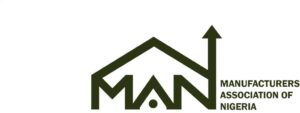
The challenges of inflation, high cost of raw materials, low government patronage and increase in imported products have continued to take their tolls on the nation’s manufacturing sector, as a recent report, released by the Manufacturers Association of Nigeria (MAN) revealed a drop in the levels of confidence of operators in five of the sectoral groups in the sector.
The Report, tagged ‘ Manufacturers’ CEO Confidence Index’ (MCCI), showed the operators’ confidence levels in those sectoral groups, dipping below the 50 point benchmark , in the third quarter of 2024, due to the aforementioned challenges confronting the sector.
The five Sectoral groups, negatively impacted, in the period under review, are: Food Beverage & Tobacco (47.5); Textile, Apparel & Footwear(44); Domestic/Industrial Plastic & Rubber (48); Motor Vehicle & Misc. Assembly (44); and Wood & Wood Products( 48).
The Report also identified Kaduna (48); Kano (45); Anambra/Enugu (42.2) and Bauchi/Benue/Plateau (40), as zones that also failed to meet the 50 point benchmark in Q3, 2024.
It revealed that despite the Central Bank of Nigeria’s (CBN) decision to hike interest rates six consecutive times in 2024, from 22.75 percent to 27.5 percent, and also carried out Forex reforms, inflation continued to rise, while FX inflow dropped by 60.7percent over the last one year.
While calling on the CBN to apply a brake on the interest rates hike, the association stressed the need for the apex bank to review the impact of the policies it had so far rolled out to enable it effectively control the consequences of such policies and make adjustments.
The manufacturers’ group also called on the government to honour the unsettled $2.4billion forex forward contract to further increase market confidence and promote Foreign Direct Investment (FDI).
It added that for the government to effectively tackle the burning issues holding down the economy, it has become imperative to review the electricity tariff hike to only 100% increase of the previous price, while also calling for the introduction of outage compensation mechanism to improve electricity access.
It also called for the freezing of the exchange rate at N1000 to a dollar, in the calculation of import duties for production inputs, while urging the government to categorize manufacturers, as strategic users of gas, in order to remove the gap between what manufacturers and electricity generation companies pay per cubic foot of gas.
While commending the CBN on its efforts at curbing inflation, and stabilizing the naira, it however described the macroeconomic headwinds being experienced in the country as a proof that the monetary policy instruments have not fully addressed the nation’s broader economic challenge of high energy prices, infrastructure deficits, among others.
Meanwhile, the association, in another position paper on the National Bureau of Statistics (NBS) GDP Report for the Third Quarter of Year 2024, described the 2.18 percent growth rate recorded in the nation’s manufacturing sector, in the third quarter of 2024, as posing significant danger to the federal government’s industrialization agenda, and its efforts at attaining a $1Trillion economy by 2030.
It expressed its reservation that the services sector has continued to boom at the expense of employment and production in the manufacturing, as shown in the report, warning the development might thwart the economy’s aspirations at reducing forex demand pressures, promoting value addition and generating mass employment.
The association noted that the poor performance of the manufacturing sector might also not help government’s efforts at increasing export earnings, driving industrial-led growth, and ensuring sustainable development.
“By implication, achieving a $1 trillion economy by 2030 is apparently difficult, as the growth rate clearly falls short of the 6 percent average targeted by the present administration,” it added.




Comments